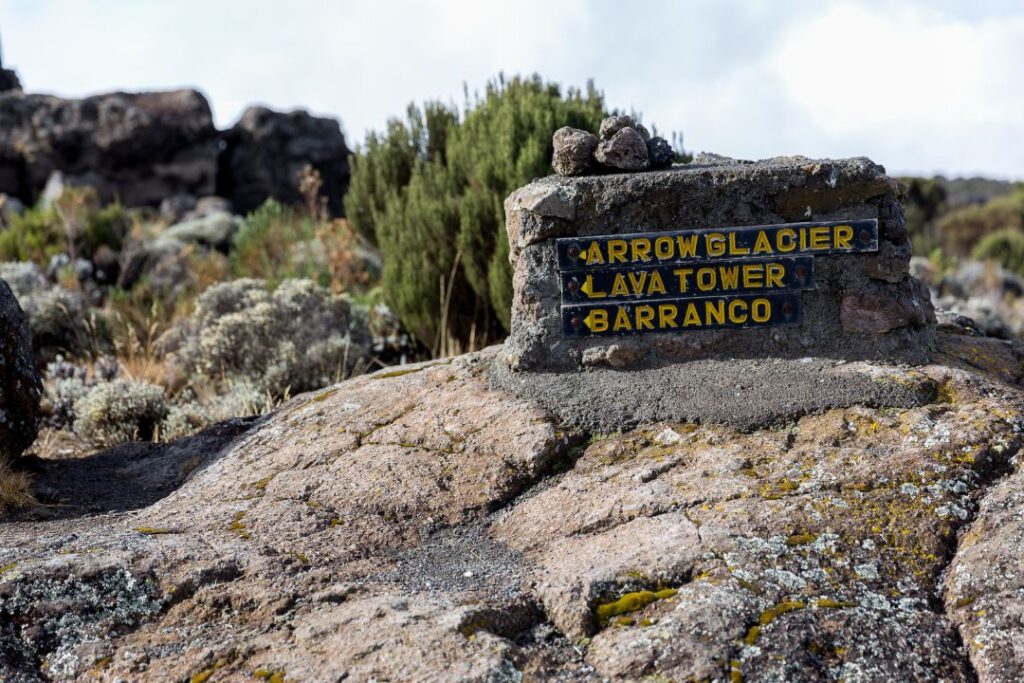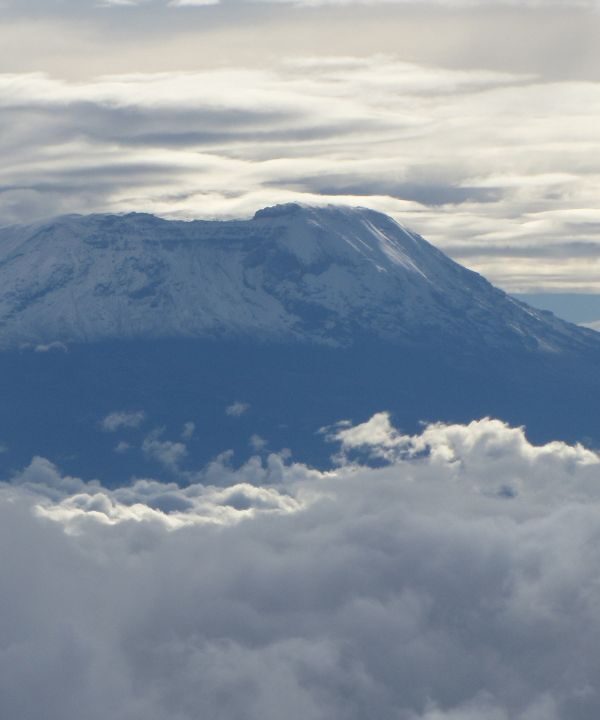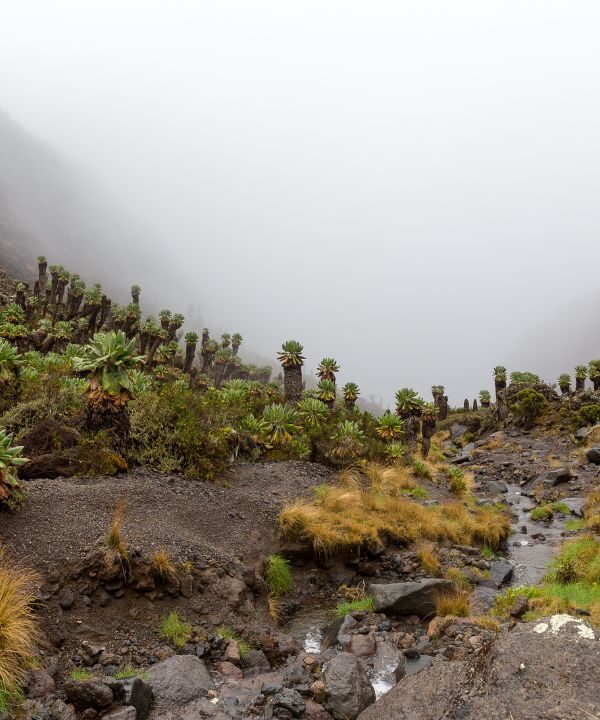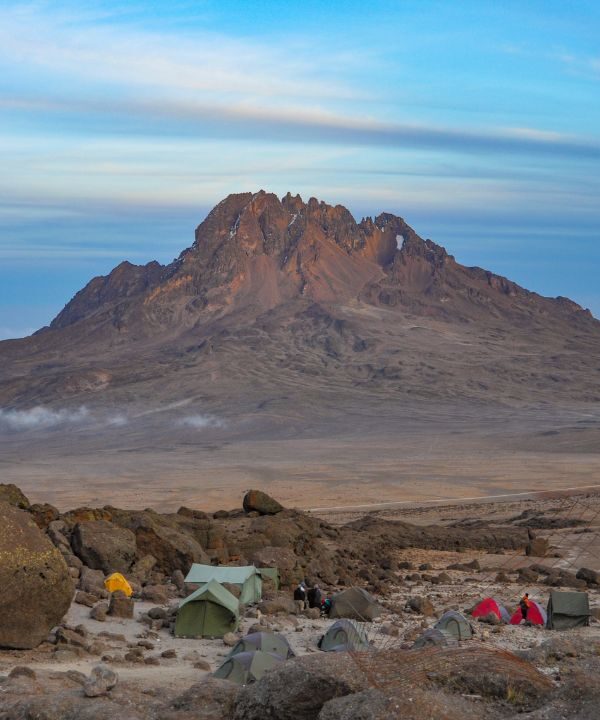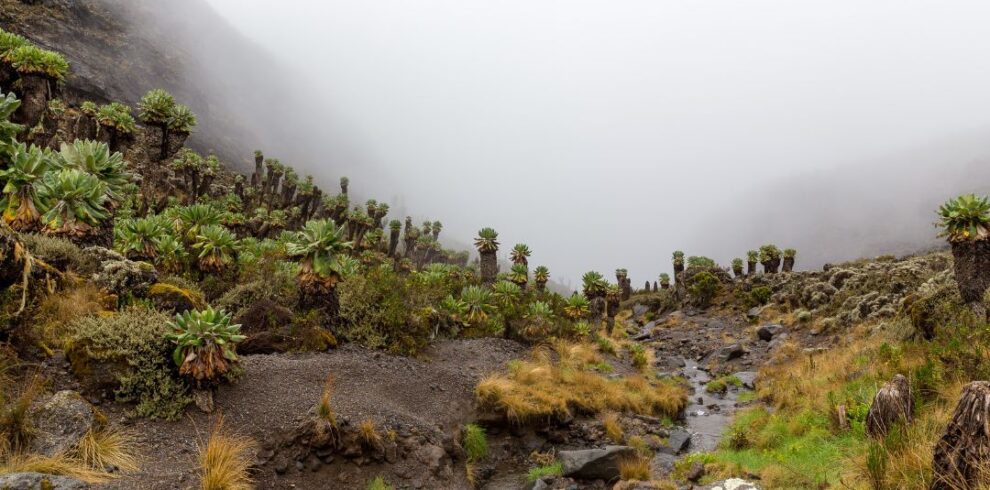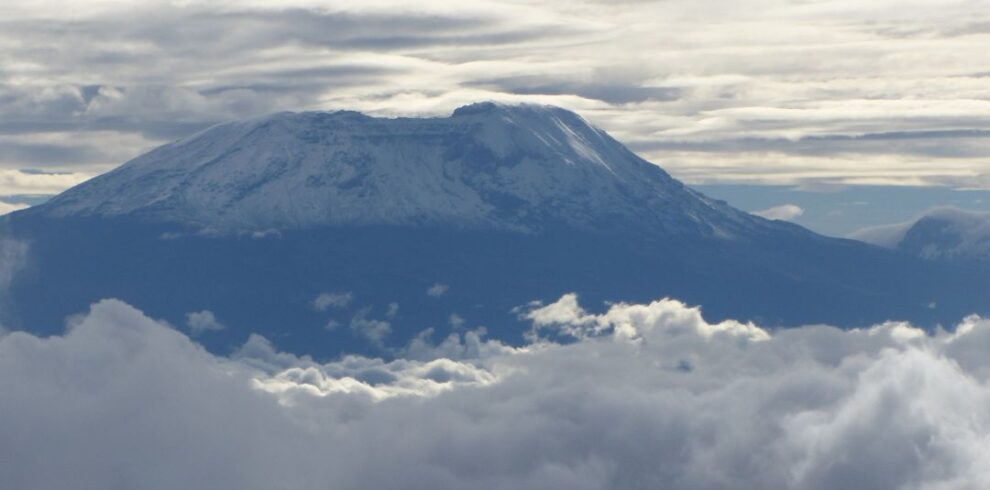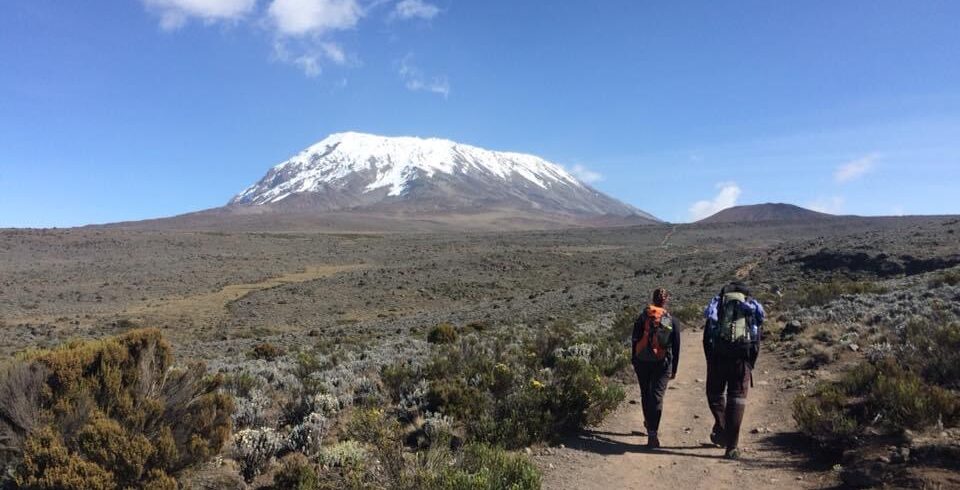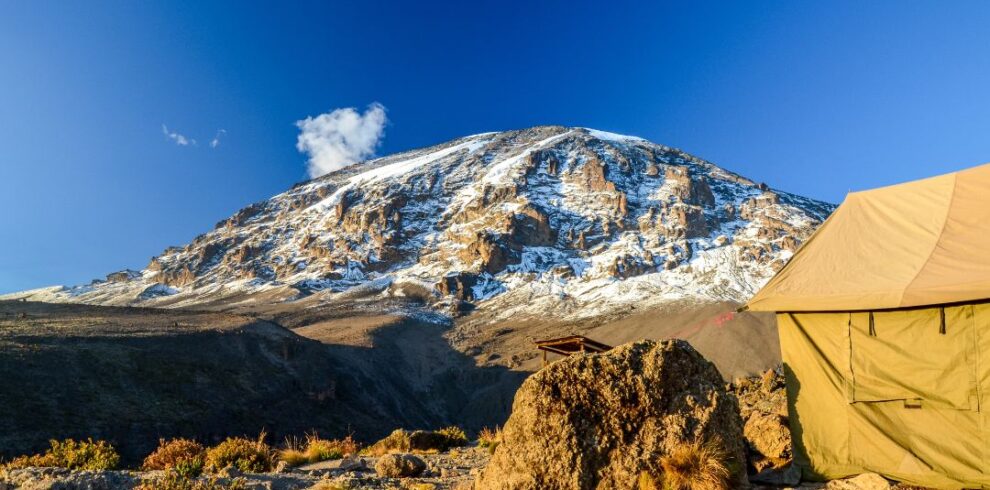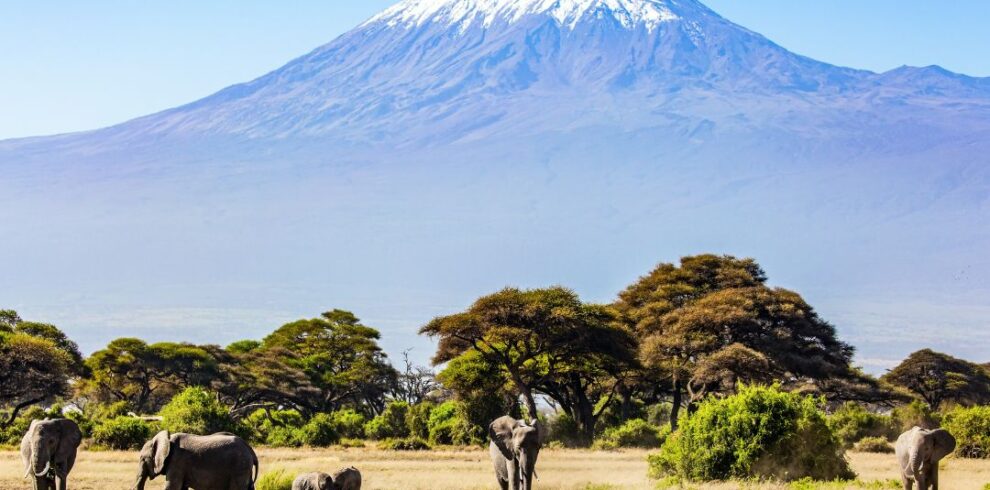Elevation at the end: Barafu Camp (4,673 meters / 15,331 feet)
Trekking time: Approximately 4–5 hours
Today's trek leads you through a stark and rocky alpine landscape as you ascend steadily toward Barafu Camp, your base for the final summit attempt. The terrain becomes increasingly rugged, with sweeping views of the surrounding peaks and valleys. Upon arrival at camp, you'll have an early dinner and settle in for much-needed rest—preparing mentally and physically for the challenging midnight climb to Uhuru Peak that lies ahead.

